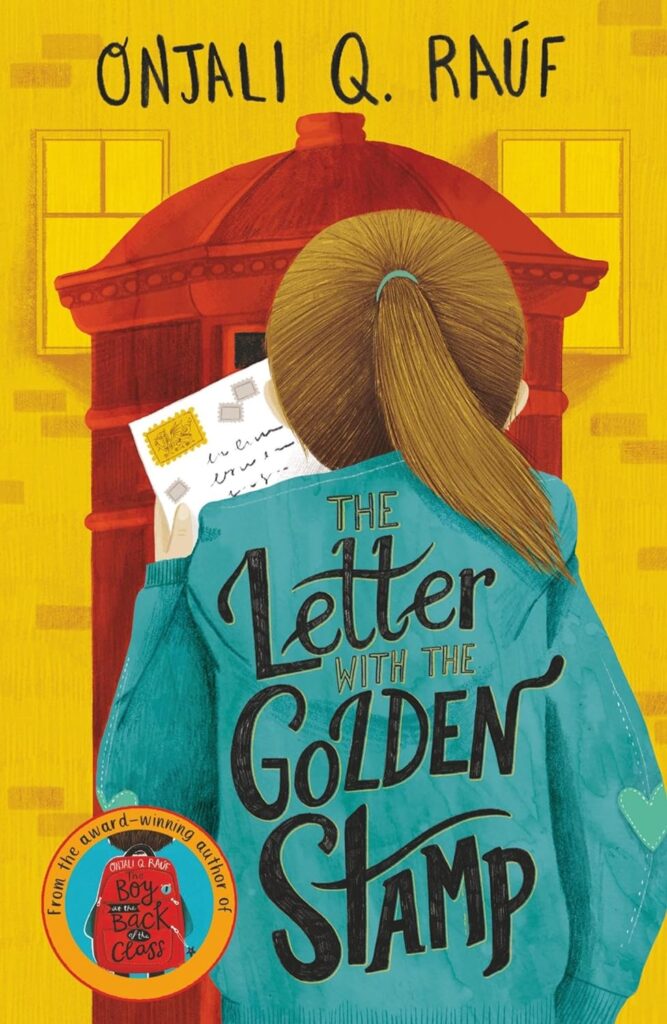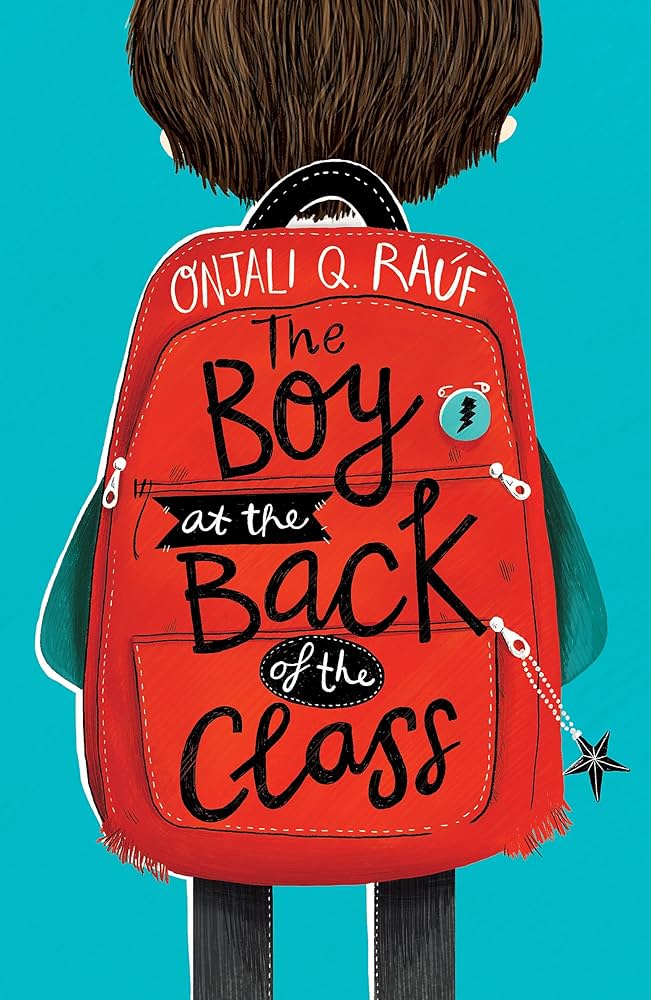
Asjad NazirBy: Asjad Nazir
TWO things from lockdown inspired Onjali Q Rauf to write her beautiful new children’s book, The Letter With The Golden Stamp.
The first was memories of being a young carer, as a 15-year-old, when her father became paralysed from the neck down. That feeling of being trapped at home, surrounded by pain, sickness, sirens and worry, made her think about what the nearly one million children in this country might be going through – especially those from less privileged backgrounds without enough money for basics, grappling with keeping people alive with next to no support.

The second was her postman, who was the only face many saw during the pandemic, and someone that reminded her of people who quietly watch the community without being noticed.
These inspirations, mixed with a love for stamps resulted in an inspiring book about a young girl, secretly looking after a sick mother and desperately trying to keep her family together.
One of this year’s standout books adds to her acclaimed body of literary work that includes The Boy at the Back of the Class, which was recently turned into a hit theatre play.
Eastern Eye caught up with the acclaimed author and founder of charities, including one for refugees, to discuss her new book. She also spoke about themes of kindness, inspirations and why she is drawn towards fearless young protagonists for her stories.
How do you reflect on your writing journey?
The journey started when I was seven, so it’s definitely been a long one. Lined with many a detour, dead end, and moments of just wanting to give up. But those are just the potholes, and everyone must face their own versions, no matter what they’re wanting to achieve in life.
The joys of finally getting a story out, outweighs the pain ten times over. So, I guess I’ll keep on going for as long as people want to read what I have to say.
Did you expect your book, The Boy At The Back Of The Class, to be such a huge success?
Not in a million years. I am still in awe of it all – most especially at what readers, teachers and librarians of the world have gone on to do with it.
They’re the reason why the play version of it exists. And why, five years and hundreds of school visits later, I’m still here, talking about it. The success of it goes beyond any imagining I had for it, and I couldn’t be more grateful.
Why do you think that book resonated so strongly with readers?
There’s a sweet spot in our childhood, where we’re not afraid of our questions, and when our conscience hones in on the fact that, ‘hey, grown-ups don’t have all the answers’.
The refugee crisis and ongoing wars are consistently exposing the most infantile, worst, and inhumane versions of that grown-up world, and inevitably, children have questions about all of it.
The story resonates, because it contains questions that children, and adults, are already asking themselves about what is going on and why. I won’t pretend the book has all the answers, but it definitely has enough to get discussions going.
How did it feel to see the book being turned into a hit theatre play?
I’ve watched the play about ten times now, with both school and family audiences. Each time has yielded an outer body experience. It’s surreal in the most beautiful way. I’m so proud of Nick (Ahad, playwright and presenter for BBC Radio Leeds) in crafting it the way he has. Being of Bangladeshi heritage too, he got the heart of Ahmet (the refugee boy) and the narrator instantly.
I’m proud to say we have both sat and watched the play in absolute floods of tears together.
Tell us about your new book.
The story centres on a young carer (and stamp collector) Audrey, who is secretly caring for her very sick, single mum. When a mysterious, invisible neighbour moves into the house opposite, her world begins to unravel, and there’s only one thing she can think of that might help save her mum and keep her family together.
So inspired by Mo (her postman), a shoebox full of stamps, and with her two best friends to hand, she sets off on an adventure that leads her to the very places she never meant, or wanted, to go.
Who are you hoping connects to this book?
I am really hoping children caring for loved ones behind closed doors and literally living a multitude of lives and roles, find their way to Audrey’s story.
I am especially hoping that children who have not been identified or rewarded for their care services, recognise themselves as a young carer too.
I’m still shocked that so many children, especially from black and Asian backgrounds, have not been recognised as young carers, and so are missing out on a world of respite programmes and help. They need to be cared for too.
Why does the theme of kindness resonate so strongly with you?
Because I know kindness is a more powerful and clever force than most people give it credit for. Too many people mistake kindness for stupidity or as a show of weakness.
It takes strength to be kind in a deeply unkind world. And for people that hold on to it and exemplify it, whole new worlds, friendships and untold joys await. Those are precious gifts, which tend to vanish for people who sneer, belittle or bully that capacity out of themselves.
What draws you towards having young protagonists in your books?
I think we’re the bravest in life when we’re children. So, there’s far more scope for adventures, thoughts, actions and hilarities, that just wouldn’t work as well in the sceptical world of adults. In short, it’s a whole lot more fun, and magical to get to build adventures around the minds and awesome hearts of a brave kid or three.

Does the success of your previous books put pressure on this book?
That worry is always there. But the pressure is not so much to do with commercial ‘success’ (which I interpret as awards and sales figures). And more to do with whether or not the next story is good enough for my readers – whether they’ll accept each new story as being so different to the ones preceding it. Every story has its time. As long as my books have an equal playing field amongst all the other books being released and remains accessible to my readers, I won’t worry about ‘success’ in other forms.
What is your favourite moment or passage from the new book?
When Audrey describes what she feels when she sees a stamp she’s never seen before. I still feel like that when I see something so beautiful, I need to have it. And the last sentence.
What inspires you creatively as a writer?
Real-life heroes. They’re absolutely everywhere. From my own mum to refugees, I meet in the camps, to the frontliners working every single day to keep others alive for no recognition or reward. I have enough material to last me a lifetime, thanks to them all.
What kind of books do you enjoy reading?
I’ll read pretty much anything. Murder mysteries. Biographies. Thrillers. I am loving the surge in translated South Korean and Japanese stories hitting our bookshelves. As long as the story is interesting, I’ll read it.
What can we expect next from you? Hopefully, a few more stories to keep the discussions going. Especially around the topics of racism and sexism.
Why should we all pick up your new book?
Because the cover (drawn by Pippa Curnick) is awesome and shimmery. And for £7.99, you’ll get to go on an adventure that hopefully, you won’t ever have been on before.